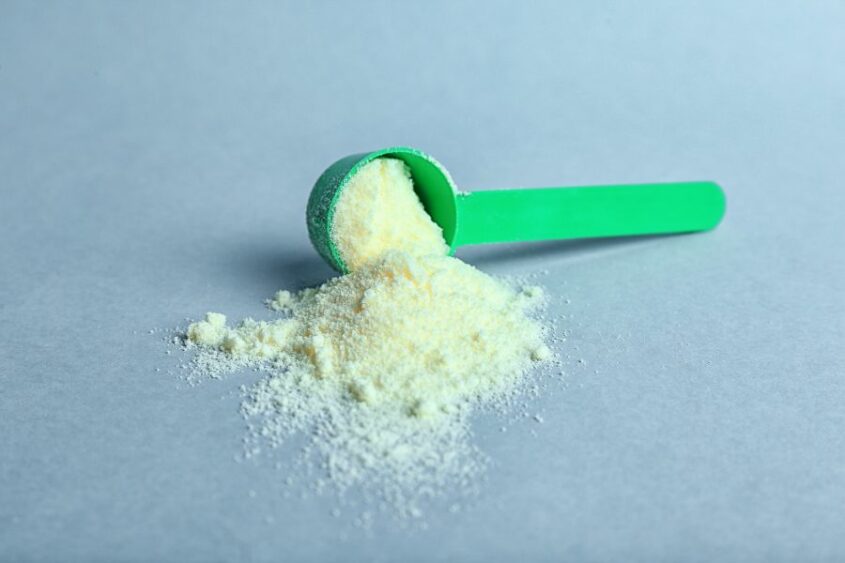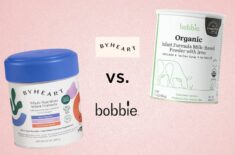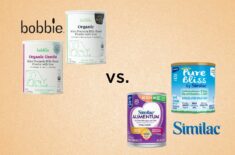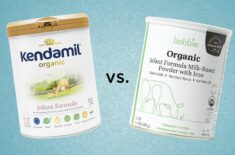Overview
Amid concerns regarding infant formula recalls and the ongoing formula shortage, the FDA announced that an independent study will be conducted on various factors involving these baby products. (1)
The US Congress reportedly directed the FDA to develop a plan to increase the US formula market’s resiliency to keep history from repeating itself. (1)
Conducting an in-depth study was one of the plans they devised under the FDORA (Food and Drug Omnibus Reform Act of 2022) to solve the infant formula shortage. (2)
What’s the scope of this study, who will conduct it, and what benefits can we expect from it?
Let’s discuss these below.
Scope Of The Study
According to the FDA press release, the NASEM (National Academies of Sciences, Engineering, & Medicine) will conduct the independent study. (1)
It will be in-depth research that covers several topics relevant to infant formulas: (1)
- Infant formula regulation in the US
- Types of formulas currently produced by the different manufacturers (e.g., powdered or liquid products, non-specialty or specialty formulas, etc.)
- Current production state (e.g., manufacturing practices, plant capacities, etc.)
- Local production vs. importation (e.g., how much of the formula products are produced domestically or are imported)
- Current market state (e.g., market competition, diversity, etc.)
- Systems or conditions influencing the US infant formula market competition
- Supply challenges
- Comparison between the factors listed above vs. conditions before the massive Similac recall in 2022 and the COVID pandemic
- Comparison between US formula regulations vs. foreign markets such as the European Union (e.g., labeling, nutritional content requirements, and other regulatory provisions)
- Other relevant characteristics and information
Benefits & Goals Of The Study
NASEM will report the study results to both the FDA and Congress. (1)
According to the FDA press release, they will use these results to develop a long-term, sustainable national strategy. In turn, this might, hopefully, help reduce the risks of another massive infant formula recall and shortage in the future. (1)
FAQs
What’s The FDA Recall On Baby Formula?
The FDA and respective manufacturers have recalled dozens of formulas for different reasons.
Potential contamination with certain bacterial strains, especially Cronobacter sakazakii, is the most common reason for these formula recalls.
Other common reasons include possible contamination with other hazards (e.g., insect eggs or sharp parts from broken/faulty machines used in production) or manufacturing defects (e.g., improperly sealed containers, etc.).
Read about all these formula recalls here.
What Powdered Baby Formula Did The FDA Warn Against Using After A 2nd Death?
On February 28, 2022, the FDA warned the public and issued a recall on one lot of Similac PM 60/40 after the death of a second infant who tested positive for the bacteria Cronobacter sakazakii.
The baby had reportedly consumed Similac PM 60/40 from the affected lot. (3)
It was the second Similac recall of 2022 (it was released mere days after the first was issued). (3)
How Did The FDA Cause Formula Shortage?
A whistleblower report and subsequent investigations over the formula shortage showed that the FDA might have inadvertently “caused” the shortage after apparently failing to prevent the Similac recall. (4)
Frank Yiannas, a former FDA Deputy Commissioner, reportedly admitted to a congressional panel that the FDA had already received the whistleblower complaint and some illness reports beginning in October 2021. (4)
However, the federal agency took several months to act on the problems. It led to the irreversible issues that started with the 2022 Similac recall and, as a domino effect, the ongoing shortage. (4)
Did The FDA Approve Baby Formula?
The FDA doesn’t need to approve baby formula products before manufacturers can release them. However, manufacturers are required to do the following: (5)
- Inform the FDA before they market new baby formula products
- Meet all the federal nutrient requirements for infant formula
- Follow labeling guidelines and requirements
Our Infant Formula Recommendations
We recommend the following formula brands. However, always ensure that you consult your pediatrician before switching or giving these products to your baby.
Some US-made formulas to consider:
- Serenity Kids A2 Toddler Formula (Use our code MHC for 15% off first-time orders, too!)
- Bobbie Organic Infant Formula
- ByHeart Baby Formula
Some European brands to try:
- Holle Organic (Bio)
- Hipp Dutch Combiotic Formula
- Kendamil
- Lebenswert
- Loulouka
Many European brands aren’t approved by the FDA. Still, many parents opt for these over American commercial options.
Other Recent Baby Product Recalls & Safety Warnings
Sign up for our regular Motherhood Community recall alerts to stay updated on the latest news so you never miss an important recall or safety notice.
Check these comprehensive lists of product recalls by category:
- Stroller recalls (2020 to 2023)
- Recalled toys list (2020 to 2023)
- Baby formula recall (2001 to 2022)
- Baby food recall (2015 to 2022)
- Pacifier recall (2019 to 2022)
- Baby wipes recall (2014 to 2022)
References:
(1) https://www.fda.gov/food/cfsan-constituent-updates/fda-announces-national-academies-study-supply-market-competition-and-regulation-infant-formula-us
(2) https://www.fda.gov/news-events/press-announcements/fda-outlines-immediate-national-strategy-further-increase-resiliency-us-infant-formula-market
(3) https://www.similacrecall.com/us/en/home.html
(4) https://www.kxxv.com/news/national/ex-fda-official-feds-waited-4-months-to-recall-infant-formula
(5) https://www.fda.gov/regulatory-information/search-fda-guidance-documents/guidance-industry-frequently-asked-questions-about-fdas-regulation-infant-formula












